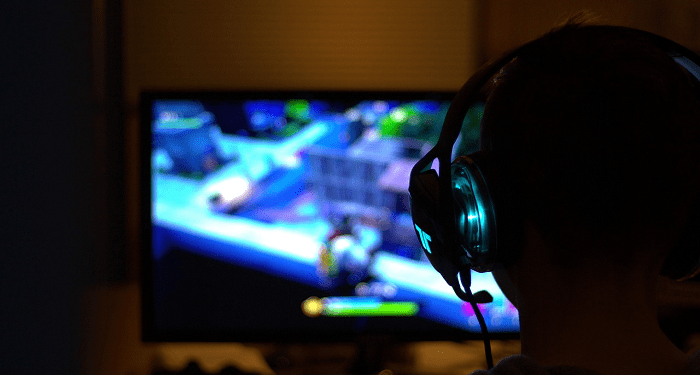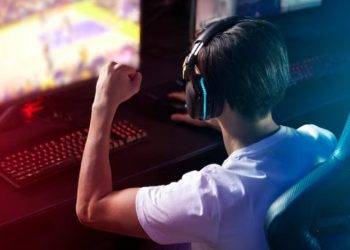Have you ever thought about how online games might actually make your brain sharper?
Many people play games just for fun or relaxation, but there’s so much more happening behind the scenes in our minds when we play. Online gaming, when done in balance, can actually help improve several cognitive skills that we use every single day in school, at work, and even in everyday problem-solving.
How Online Gaming Builds Brain Coordination
One of the biggest benefits of online gaming is how it helps improve coordination between the eyes, hands, and brain. When you play games that involve aiming, shooting, or controlling characters, your eyes constantly scan the screen for movement while your brain quickly decides what to do next. Then, your hands follow the brain’s command on the keyboard or controller. This constant cycle strengthens coordination and sharpens reaction time. Over time, players become faster at responding to situations not only in slot depo 1k games but also in real-life tasks that need focus and precision.
Improving Focus and Attention Through Gameplay
Many online games need players to stay focused for long periods, especially competitive or strategy-based games. This focus helps in real life, too. Players learn how to block out distractions, stay alert, and give full attention to one task. For example, someone playing an online strategy game needs to pay attention to small details like enemy movements or limited resources.
Memory Boost and Learning Ability
Online games, especially puzzle or adventure slot deposit 5000 games, often require remembering patterns, sequences, and storylines. This helps strengthen both short-term and long-term memory. Some games also challenge players to remember directions, object placements, or in-game strategies to move ahead. These mental exercises make the brain more active and flexible. A sharper memory helps in other areas too, like remembering study materials, schedules, or important information in work meetings.
Strategic Thinking and Planning
One more amazing thing about online gaming is how it encourages players to think strategically. Games like real-time strategy, simulation, or building games push players to plan ahead, manage resources, and make smart decisions. Every choice in such games has an outcome, which makes the player think carefully before acting. This builds decision-making and logical thinking, helping people plan better in day-to-day life—like organizing tasks, managing budgets, or solving unexpected problems.
Teamwork and Communication Skills
Many online games involve multiplayer features where players must cooperate with others to win. These experiences teach teamwork, patience, and leadership. When you play with people from different backgrounds, you learn to communicate clearly, respect others’ opinions, and adapt to different play styles. This is a skill that can be easily used in real-world settings like schools, offices, or family teamwork. Being able to work well with others is something employers and educators value a lot today.
Problem-Solving Made Fun
Games are filled with challenges that push players to find solutions quickly. Every time a player faces a tough level, they naturally think of different ways to solve it. This type of problem-solving improves mental flexibility and encourages creative thinking. Over time, players get used to analyzing situations calmly and finding the best approach—skills that are very helpful in real life when we face small daily issues or larger decisions.
Decision-Making Under Pressure
Online gaming often involves fast-paced environments where decisions must be made in seconds. This trains the brain to think quickly without losing clarity. For example, in shooting or racing games, you need to decide immediately where to move, what to avoid, or when to attack. Making the right call at the right moment boosts decision-making ability.
Emotional Balance and Patience
Online games can also help develop emotional control. Players learn how to handle winning and losing with balance. While enjoying a victory feels rewarding, facing tough challenges teaches patience and persistence. Over time, this builds emotional maturity. Instead of getting frustrated easily, players learn to try again calmly and keep improving. It’s the same attitude that helps in professional and personal life.
Enhancing Multitasking Skills
Many games demand doing multiple actions at the same time—keeping track of time, watching maps, communicating with teammates, and handling resources. Managing all this together improves multitasking ability. It trains the brain to switch between tasks quickly while maintaining accuracy.
Building Confidence and Self-Belief
Every time a player achieves a goal or completes a tough level, it brings a sense of success. This boosts confidence and motivates players to keep going. The sense of achievement gained from gaming can translate to real-world confidence. It teaches that effort and consistency bring results, no matter the challenge.
Promoting Creative Thinking
Certain online games encourage imagination and creativity. Games that involve designing, building, or storytelling push players to think outside the box. For example, creating cities, designing characters, or writing strategies in games gives space for creative thinking. This creativity can easily reflect in real life, like when finding fresh ideas for work, art, or personal projects. It also helps people see things from new perspectives and express ideas more freely.
Positive Impact on Social Skills
Online gaming connects millions of players across the globe. Through communication features like chats or voice calls, players interact, make friends, and even form gaming communities. This can help shy or introverted individuals open up more easily and feel part of a group. It builds social confidence and helps people understand teamwork, respect, and cooperation in a fun setting. Healthy friendships made through gaming can even extend beyond the screen.
Encouraging Goal Setting and Achievement
Online games always come with objectives or missions. Completing these gives a sense of direction and satisfaction. This habit of setting goals and achieving them can inspire players in real life, too. Whether it’s finishing a project, learning a new skill, or setting fitness targets, the same attitude of progress and achievement applies. Gaming subtly teaches the value of patience, hard work, and discipline.
Conclusion
So, the connection between online gaming and cognitive skills is much stronger than most people think. Gaming is not just entertainment—it’s a form of mental exercise that trains memory, focus, coordination, problem-solving, and creativity. When played responsibly, it helps build qualities that support learning, teamwork, and confidence in daily life. With so many types of games available, there’s always something that fits different age groups and interests.










